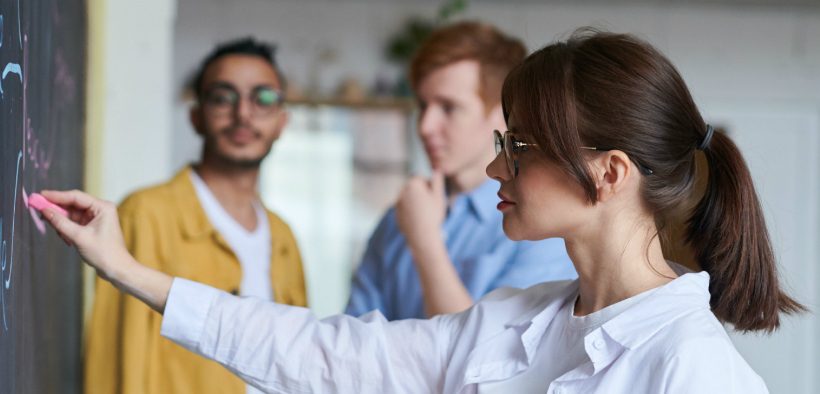Teachers can’t monitor what’s happening in multiple groups. Students, on the other hand, know exactly what’s happening in their group—who’s contributing what in the group as well as what they’re doing. From that position they can make judgments and offer peers feedback. The potential benefits of their doing so include self-assessment skill development, more engagement with group processes, and acceptance of the responsibility for learning. But empirical substantiation of those benefits is scant, with indications that feedback effects may vary depending on whether the feedback offers praise or criticism; whether it focuses on the task, group processes, or self-assessments; and whether it focuses on past actions or offers advice for the future. This study addresses one gap in the research. Does the exchange of feedback between students enhance teamwork and self-assessment abilities? The answer may offer evidence that confirms the assumed value of self- and peer assessment in the context of group work.
Does Self- and Peer Assessment Improve Learning in Groups?

Related Articles
I have two loves: teaching and learning. Although I love them for different reasons, I’ve been passionate about...
Active learning is a mostly meaningless educational buzzword. It’s a feel-good, intuitively popular term that indicates concern for...
Perhaps the earliest introduction a student has with a course is the syllabus as it’s generally the first...
Generative AI allows instructors to create interactive, self-directed review activities for their courses. The beauty of these activities...
I’ve often felt that a teacher’s life is suspended, Janus-like, between past experiences and future hopes; it’s only...
I teach first-year writing at a small liberal arts college, and on the first day of class, I...
Proponents of rubrics champion them as a means of ensuring consistency in grading, not only between students within...








